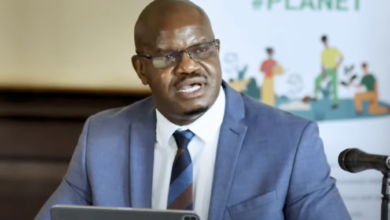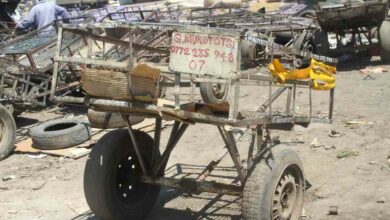Zimbos in SA preparing to hold anti-crime summit

Zimbabweans living in South Africa are preparing to hold an anti-crime summit, with a view to come up with strategies, which can be implemented to lessen criminal activities that are growing out of hand South of the Limpopo.
The anti-crime summit is to be held at Hillbrow Brethren in Christ Church in Johannesburg on February 6, 2020 under the theme: “Building a Crime Free Environment in our Communities.”
Recently, a Zimbabwean man shot and killed a South African Police chief while in pursuit of criminal suspects in Diepsloot almost two week ago.
This prompted xenophobic attacks as South African residents stormed a police station in the area demanding that the Zimbabwean man be handed over to them and when their demands were not met, they turned on foreign nationals.
To prevent such episodes, the Zimbabwean community in South Africa has started planning for its anti-crime summit, with the intention of bringing together – in one venue, authorities, local and foreign nationals to discuss the ‘hot’ issue.
“The reason for holding this anti-crime summit is because crime is growing out of hand. We need to discuss how we can isolate and weed- out criminals from our communities in order to build a safe environment free from criminal elements,” said Chairperson of the Zimbabwe Community in South Africa, Nggabutho Nicholas Mabhena in an interview with CITE.
He noted that as organisers, they hoped to invite church leaders, political representatives, traditional leaders and community leaders.
“What needs to be done is the community and police have to work together to plan and develop strategies on how crime can be defeated. We have a challenge that when members of the community point out to police some individuals involved in crime and they are arrested, the police inform them who would have tipped them. This has made it difficult for people to participate in working with the police in terms of identifying criminal elements and these are issues that we need to deal with,” Mabhena said.
The chairperson highlighted that “the aim of the anti-crime summit was to work together with the police, as joint efforts between law enforcement agency and the community would lessen criminal activity.”
Mabhena, however, was quick to point out that the organisation was by no means inferring that Zimbabweans were the ones who committed a lot of crime in South Africa but wanted to come up with solutions.
“It’s not only Zimbabweans who resort to crime, every society has its own criminals and we are part of community in South Africa. Criminals are found among the community and as people we live in such communities, sometimes knowing who is involved in criminal activities. These are tough issues but we need to deal with them.
“It is unfortunate that when members of a certain community are involved in a crime, the whole community is branded as criminals. We do we have progressive Zimbabweans who continuously work to rebuild the South African economy. Of course, we have bad apples and these are what we need to weed out,” said the chairperson.
He also noted that the anti-crime summit would also interrogate why individuals resort to criminal activities.
“We cannot blame crime on unemployment and we seem not to understand this phenomenon, which is why we need to share notes and understand what pushes criminals or those people involved in crime,” Mabhena said.
The chairperson added: “There are challenges that when an undocumented person commits a crime, they cannot be traced but if a person is documented it means the South African government has their fingerprints in their system. Documenting Zimbabweans and other migrants is quite progressive in the fight against crime as authorities can check who these criminals are and apprehend them. But if a person is undocumented and finger prints are not in system they can commit crime and simply run away, with no way of tracing them.”







These zimboz must come and organise their own community not emalayinini